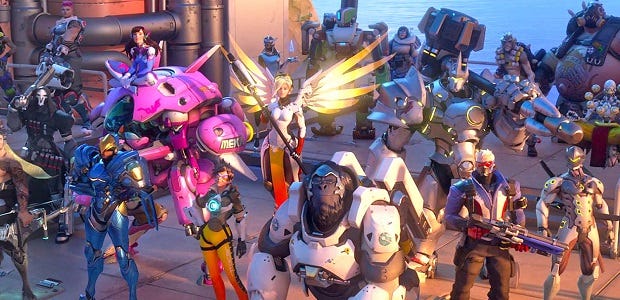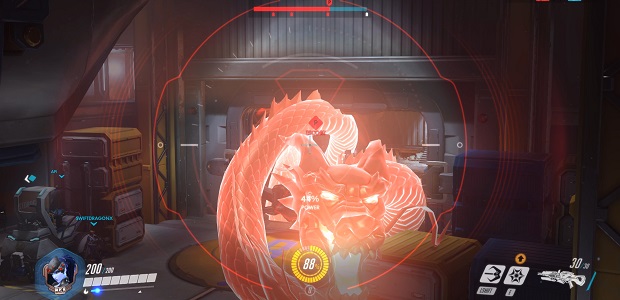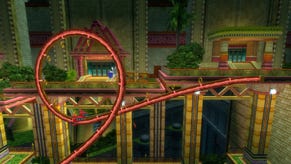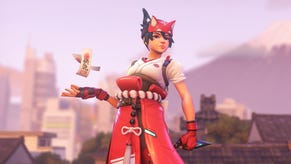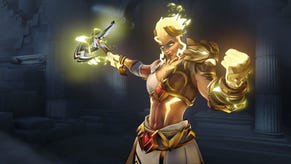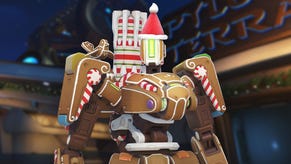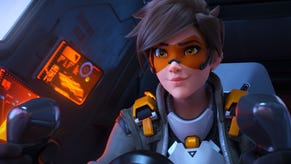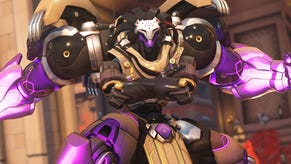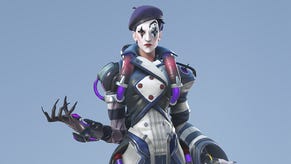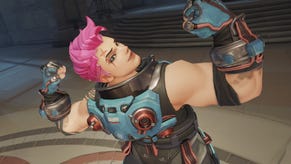Wot I Think: Overwatch
Heroic effort
Overwatch [official site] is like going for an evening of speed dating and realizing everyone you meet is marriage material. I'll stare at the character select screen before each match, unable to decide which hero I want to play because I want to play them all. Do I play as Reaper and try to earn 'Play of the Game' with my deadly shotguns? Do I hang back as Widowmaker and snipe holes into people's heads? These are the kinds of questions are only made hard because each one leads to its own kind of fun. But does all that diversity lead to a game as enduring as everything else in Blizzard's great legacy? Here's wot I think.
At the risk of spoiling an entire review, the answer to that last question is yes. Overwatch is fantastic. And while I enjoy the eclectic cast of characters, what I really love is that Overwatch feels smartly cognizant of the gaming landscape it so deftly navigates. It pulls the best from various competitive multiplayer games, but never feels like plagiarism. Instead, Overwatch displays the same kind of iteration that turned World of Warcraft into the big daddy of MMOs. I'm not saying that Overwatch will be the next World of Warcraft (despite starting out as such), just that Blizzard has done it again.
The heart of Overwatch is its roster of 21 characters. They are an endearing ensemble of heroes that I'm frankly amazed fit together so well. At this point, Blizzard might be the only company that can put a robot, a ninja, and a talking gorilla in the same universe and have it make sense. Sadly, beyond each character's personality and the small amount of texture they add to the world around them, you'll get very little story out of Overwatch. It reminds me of Dark Souls in the sense that there's some dots to connect, but you're always left wanting more. That's probably a smart thing, as Overwatch gains little by being bogged down in a sticky story.
Instead, Overwatch is purely focused on mayhem and combat. Teams of six square off across 12 objective-based maps, trying to capture control points or escort payloads to their destination. A well-rounded team is crucial, and a helpful user interface will suggest what holes to fill as each player chooses during the preparation stage of each round. Hero switching is a core part of Overwatch, and each team is encouraged to change and adapt often to form new strategies or respond to threats. While I don't think many players are switching as often as Blizzard intended, it's a fantastic emphasis that gives Overwatch a sense of enduring flexibility.
Heroes are divided into four roles. Tanks provide serious muscle on the field, pushing forward with their high health and powerful attacks. Offensive heroes complement that push, targeting weak links in the enemy's team and moving aggressively to break them. Defensive heroes bring utility, either through crowd-control or shutting down enemy strategies. And finally, support heroes keep everyone alive and fighting—even if they're rarely recognized for their contribution.
That might not sound complicated, but each hero brings their own unique abilities and playstyle to the fight, and the layers of nuance and synergy that exist between them is, at times, overwhelming. There's the more obvious relationships like Reinhardt using his shield to cover a Bastion as it mows down enemies with a chaingun. But beyond those, there are thousands of little ways each hero can compliment another to form cohesive teams. As Mei, I love catching the enemy team in my freezing ultimate ability so that another hero can mop them up with theirs.
But for every play there is also a counter play, and choosing heroes that can shut down a powerful enemy is equally as important to team design. Mei might be deadly up close, but Pharah's deadly rockets can smack her around from a distance without much trouble. Likewise, Pharah is vulnerable to Soldier 76's machine gun, who himself is weak to Roadhog who is countered by Mei. At first, all of this seems too much to take in, but the more I spent with each hero the more I became aware of how they could work together. It becomes a puzzle to look at the enemy team's composition and figure out where their weak link is without switching to a hero that creates one for your own.
It's here that Overwatch's simplicity becomes a real blessing because it encourages experimentation, and you won't waste long hours just trying to acquaint yourself with a new pick. Most characters have two standard abilities in addition to their main weapon and ultimate ability. Pressing F1 displays a short description of each, and I found it easy to piece that information together into a basic strategy.
But don't mistake that as me saying Overwatch is easy or shallow. Good aim will help you with more traditional heroes like Soldier 76 or Widowmaker, but there's a language to the flow of battle that I had to learn before I became a real asset to my team. Knowing when to push, when to pull back, and when to unleash my ultimate all took time to understand. At first, Overwatch can feel chaotic and messy, but before long I was reading the battlefield like a book—knowing where to be and when, and dropping ultimates that were winning matches. Those moments where it all comes together are beautiful.
Some heroes are harder than others but all of them are fun in their own way. I still have trouble with Genji because his 'float like a butterfly, sting like a bee' playstyle is almost too fast-paced for my liking. Winston, on the other hand, is quickly becoming one of my favorite tanks. I love using his jump to leap clear past frontline heroes and into softer targets, creating tense moments of over-extension before leaping back to safety at just the last moment.
Fortunately, Overwatch adeptly uses its visuals and audio to help teach you to be a better player. The graphics are no doubt charming, but they're also communicative. There's obvious cues like seeing the edges of my screen frost up when Mei has her endothermic blaster on me. But the more I play the more I begin to infer subtle messages in both my enemies and my allies. I can tell when Reinhardt's shield is about to break from the amount of cracks on its surface, or I know when to back off from dueling Zarya because her beam has reached maximum damage.
Likewise, I quickly learned to identify every callout heroes make when they trigger their potentially devastating ultimate ability, and my reactions became as instinctual as firing my gun. Hearing McCree warn "it's high noon" had me running for cover. But when my own team's Lucio shouts "let's break it down," I don't even look at my health, I just push forward as hard as I can.
It will take some time for the meta around Overwatch to settle, but I do have some concerns. While every hero is fun to play, there are some that are absolutely not fun to play against. Bastion seems like an obvious character to harp on because he can cut down entire teams all at once, but it could also be a symptom of players not adapting by switching to counter him. Mei is another hero I'm concerned about, as she's almost too survivable thanks to a powerful self-heal and a weapon that lets her be deadly both close up and at range.
At this point, these concerns feel relatively minor, and even though I might clench my fist every time a Bastion kills me from halfway across the map because I had the bad fortune of stepping out of cover for two seconds, It's not a sting that lingers very long.
I want to play Overwatch for years, but that's going to be up to Blizzard whether or not that happens. Looking at it on paper, Overwatch feels pretty barebones right now. There's four game modes and 12 maps that all cycle the same three objectives. New heroes would be welcome, but I'd much rather see Blizzard commit to creating spaces for those heroes to play in that are just as diverse and personable. That isn't to say the maps in Overwatch are terrible, but I don't find them particularly memorable either. They're certainly well designed, but the only real trick any of them has is deadly pits to fall into. I'd love to see something a bit more inventive.
It really feels like Blizzard bet everything on Overwatch's 21 heroes and it absolutely paid off. Overwatch already feels as timeless as Blizzard's other games, and it feels weird to realize that this is the first time we've seen any of these heroes. I definitely have some concerns about where Overwatch will be headed in the future, but I'm not thinking about that as I teleport across the map as Tracer. No, I'm thinking about how I'm going to get behind that Bastion to take that asshole down. I'm thinking about how good it's going to feel seeing him crumple into metal parts. I'm thinking about how much fun I'm having. The one thing I'm not thinking about? Going to bed.
Overwatch is out now.
If you want some help with how the heroes play currently, check out our Overwatch character guide.
